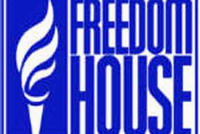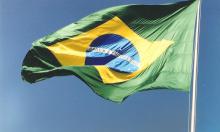Worldwide survey singles out 17 countries with repressive regimes
Worldwide survey of repressive regimes names 17 countries including Libya and North Korea "the worst of the worst" for maltreatment of their citizens last year.

Most of the cited countries are repeat-offenders, and 45 countries were rated not free to some degree.
The eight countries judged to have the worst records on political rights and civil liberties were Burma, Cuba, Libya, North Korea, Somalia, Sudan, Turkmenistan and Uzbekistan. Similarly branded for particularly repressive behavior were two territories, Chechnya and Tibet.
Within these countries and territories "state control over daily life is pervasive and wide-ranging," said the report by Freedom House, a New York-based private democracy watchdog organization.
Also, it said, "independent organizations and political opposition are banned or suppressed and fear of retribution for independent thought and action is part of daily life."
Ranked slightly above the group were Belarus, China, Ivory Coast, which is new to the list, Equatorial Guinea, Eritrea, Laos, Saudi Arabia, Syria and Zimbabwe. The contested African territory of Western Sahara was in this grouping, as well.
Massive human rights violations were found in nearly every part of the world.
"We offer this report in the hope that it will assist the democratic world in pressing the case for freedom at the United Nations and in other forums," Jennifer Windsor, executive director of Freedom House, said in a statement.
Oil-rich Libya, which has been trying to burnish its image and develop better relations with the United States and the European Union, released some political prisoners but remained a country where its citizens have few civil rights or political liberties, the report said.
North Korea, whose nuclear weapons and ballistic missile programs are considered by the United States and its neighbors as a potential threat, tightly controls every aspect of social, political and economic life, the report said. Many thousands of political prisoners are held in brutal conditions, it said.
Saudi Arabia, which the United States looks to as a pivotal promoter of peace between Israel and Arab neighbors, was credited with another year of "incremental reforms," including establishment of a supreme court in Riyadh, and setting up security, family, traffic and commercial courts.
But religious freedom does not exist and the government tightly controls domestic media, the report said. Academic freedom is restricted and informers monitor classrooms.
And Syria, with which the Bush administration has very tentative and reluctant relations despite calls from critics for more involvement, continued its repression of political and civil rights last year and renewed its crackdown on dissidents, the report said.
There were small improvements, meanwhile, in such areas as travel, residence an employment, the report said.
Subscribe to Pravda.Ru Telegram channel, Facebook, RSS!




